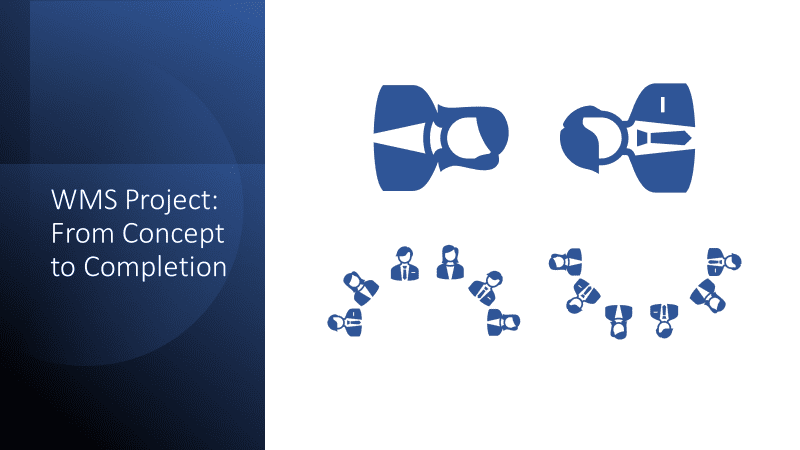 I am adding the finishing touches to ARC Advisory Group’s research on the global WMS consulting market. This research is an update to the report my colleague Steve Banker developed a couple years ago. At that time, Steve also authored an article titled 20 Things to Know about WMS System Integrators. It is a great article and I recommend checking it out. I decided to focus my update to this research on the consultancies that I consider to be “WMS specialists.” I defined specialists to be those organizations that derive a substantial amount (15 percent of more) of their business from WMS-related consulting. Although the scope of my research is slightly different, I believe Steve’s article still captures the market’s dynamics today. However, I would like to add some additional color to his findings:
I am adding the finishing touches to ARC Advisory Group’s research on the global WMS consulting market. This research is an update to the report my colleague Steve Banker developed a couple years ago. At that time, Steve also authored an article titled 20 Things to Know about WMS System Integrators. It is a great article and I recommend checking it out. I decided to focus my update to this research on the consultancies that I consider to be “WMS specialists.” I defined specialists to be those organizations that derive a substantial amount (15 percent of more) of their business from WMS-related consulting. Although the scope of my research is slightly different, I believe Steve’s article still captures the market’s dynamics today. However, I would like to add some additional color to his findings:
A Fragmented or Concentrated Market?
Steve stated that the WMS SI is a highly fragmented marketplace with many, many SI firms and many different business models. I believe this is still true, but not as much as I thought prior to conducting the research, and not nearly to the degree it was back in 2020. On a related note, he mentioned that a practice that can lead to problem implementations is for a system integrator to subcontract out some of the work to another SI firm. I found it interesting how frequently the WMS consulting specialists are subcontracted by the large, multinational IT consultancies to implement WMS at a client. This is often done as part of a broader IT project that the large consultancy was contracted to complete. So in reality, the WMS specialists are very often responsible for the WMS portion of the large enterprise-wide consulting projects taken on by the multinational IT consultants. In fact, this subcontracting dynamic was likely so widespread that large IT consultancies recently decided to acquire WMS specialists. Most notable is Accenture’s recent acquisitions of Blue Horseshoe, Inspirage, MacGregor Partners, and REPL Group.
Specialized Specialists and Domain Specialists
Another characteristic of the WMS consultant market is the relationship with the WMS provider. As Steve stated, some boutique consulting firms only implement solutions from one WMS supplier. They argue that this specialization makes them better partners. Alternatively, some SIs have a vendor selection offering. They gather requirements and then select the WMS solution that meets most of the requirements their client has asked for. In my opinion, experience with a given WMS is important to assure that the customer obtains the highest amount of value and shortest time-to-value from the project. This can be obtained from a consultant that specializes in one particular WMS (or range of offerings from one provider), or it can be from a consultant that has relationships with multiple WMS vendors, but also has the required experience with the chosen WMS. However, I also believe that independence is important if the client is looking for an objective, informed consultant to guide the assessment and WMS selection process.
Knowing WMS, Client Needs, and the Gaps
Referring to the consultants as WMS specialists implies that they tend to focus on the WMS or warehouse domain, but it also implies that they have deep insight into the capabilities of WMS, the needs and priorities of WMS customers, and any gaps between what the WMS provides and the customers’ requirements. Historically these gaps have been bridged with customization efforts. As the WMS market matured, the functional capabilities of WMS expanded, resulting in less demand for customization. Over the same period, consultants have become intimately aware of the gap between client needs and WMS solution capabilities. As Steve noted, several SIs are also software companies. In implementing WMS, they have learned of functional gaps and built solutions that bolt-on to the WMS and improve its capabilities. This remains a valuable capability that independent consultants deliver to the market. Similarly, these consultants assist clients with the selection and integration of complementary technologies. Warehouse robotics, in particular, are a fast-growing, high demand technology segment that many clients are interested in adopting but lack the domain knowledge required for informed decision making. Many WMS consultants serve as trusted advisors to their clients, guiding them to the options that best meet their needs.
**
If interesed in obtaining ARC’s forthcoming research on the global WMS Consulting Specialists market, please reach out to my colleague Conrad Hanf at chanf@arcweb.com.

















